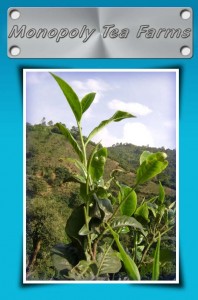Campaign Resources (403 found)
Analysis of Environmental Impact Study on Hydropower Development of Irrawaddy River
An analysis of key recommendations in the EIA of seven dams on the Irrawaddy and its tributaries in Kachin State which was funded by China Power Investment Corporation.
• • •From Prison to Front Line: Analysis of convict porter testimony 2009 – 2011
Over the last two decades, KHRG has documented the abuse of convicts taken by the thousands from prisons across Burma and forced to serve as porters for frontline units of Burma’s state army, the Tatmadaw. In the last two years alone, Tatmadaw units have used at least 1,700 convict porters during two distinct, ongoing combat operations in Karen State and eastern Bago Division; this report presents full transcripts and analysis of interviews with 59 who escaped […]
• • •Dead Men Walking: Convict Porters on the Front Lines in Eastern Burma
This 70-page report details abuses against convict porters including summary executions, torture, and the use of the convicts as “human shields” […]
• • •Thein Sein’s First 100 Days: Words Not Matches By Actions
One hundred days after assuming the presidency in Burma, former General Thein Sein has failed to take any meaningful steps towards political, legal, and economic reforms. Thein Sein’s policies have been a continuation of the State Peace and Development Council’s programs.
This five-page briefer reveals that it was “business as usual” for the Burmese military despite President Thein Sein’s much-promoted image as a “softliner” […]
• • •Report on Tourism in Burma
[…] The Association Info-Birmanie has decided to publish this report in order to bring clarifications to those who consider going to Burma on the ins and outs of the issue of tourism. We consider that the information furnished by the travel agencies only; insisting on Burma’s beauty, the Country “of a thousand and one temples” are insufficient and that it is necessary to have the most amount of information possible in order to decide whether to travel to Burma or not […]
• • •Stop Damming in War-Zones on Burma’s Major Rivers: A Briefer on Conflicts at Dam Sites in Burma
It is impossible to carry out effective community participation in dam projects under this conflict situation. Abuses associated with the fighting such as forced portering and destruction of farmlands directly impacts local communities. Foreign investors cannot follow dam building standards and risk damage to their reputation by contuing these projects […]
• • •Condemnation of Burmese Regime’s Attacks on the Ethnic Ceasefire Groups to Provoke Civil War
The root cause of Burma’s problems is denying equal rights to ethnic nationalities and the brutal dictatorship which is desperate to prolong state power by making enemies of its own people. The only solution to the conflict in Burma is inclusive and meaningful political dialogue; this cannot be achieved by military means […]
• • •Monopoly Tea Farms
 A new briefer on the tea farming crisis in Northern Shan State where the majority of ethnic Palaung people reside. The briefer highlights the monopoly in the tea leaf business by local tea factories, and how the decline in tea price effects the farmer population.
A new briefer on the tea farming crisis in Northern Shan State where the majority of ethnic Palaung people reside. The briefer highlights the monopoly in the tea leaf business by local tea factories, and how the decline in tea price effects the farmer population.
Because of this monopoly, the main source of income of the Ta’ang people is in crisis, and the local population is facing economic, social, educational and health problems. This briefer explains how the residents cannot balance the high price of rice and other basic food with the income earned from their tea farms […]
• • •Ordered Out: The Costs of Building Burma’s Upper Paunglaung Dam
A group of European and Chinese investors is currently building a dam to power Burma’s military capital which will force 8,000 mostly indigenous people from their homes by October this year. The forced relocation will leave villagers destitute: each household must tear down their home and abandon their farm fields […]
• • •Report on the Human Rights Situation in Burma
The periodic report of the Network for Human Rights Documentation – Burma (ND-Burma), documents the human rights situation in Burma during the period January – March 2011. ND-Burma periodic reports provide up-to-date information on human rights violations (HRVs) and highlight pressing issues and trends within the country […]
• • •
 All posts
All posts